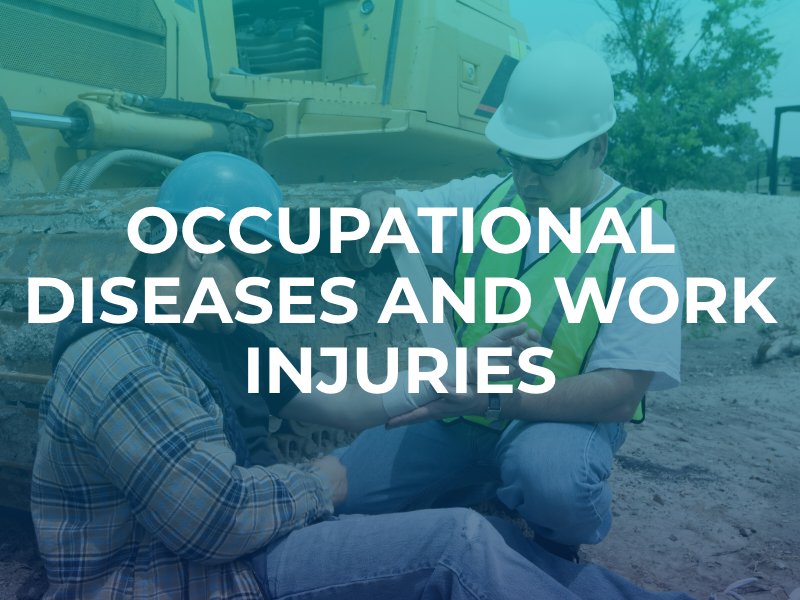Occupational Diseases and Work Injuries
Anyone who sustains a workplace injury should be able to recover compensation for their losses. This includes coverage of their medical bills and a significant portion of their lost income if they cannot work while they recover. However, not all injuries are necessarily traumatic. Often, individuals suffer from occupational injuries that occur as a result of exposure the hazardous conditions in the workplace. Here, we want to discuss how individuals recover compensation if they sustain an occupational disease as a result of job-related duties.

What is an Occupational Disease and is This Different From a Regular Work Injury?
An occupational disease, often referred to as an occupational illness, is not necessarily an acute form of workplace injury that we typically think of. Occupational illnesses typically manifest themselves after working around hazardous substances or toxins for a long period of time in the workplace.
Some of the most common occupational diseases include the following:
- Respiratory illnesses. Workplace respiratory illnesses include asthma, lung diseases, chronic obstructive pulmonary disease (COPD), and others. It is not uncommon for those who work in the automotive industry, manufacturing plants, and construction industries to be exposed to various types of particulates or chemicals that can lead to respiratory illnesses.
- Dermatitis. Dermatitis occurs anytime there are allergens or irritants in the workplace that can affect the skin. Contact dermatitis is typically caused by a wide range of chemical, biological, or physical agents found in workplaces.
- Musculoskeletal disorders. There are various types of musculoskeletal disorders individuals can suffer from, and we often refer to these as repetitive stress injuries (RSIs). Some of the most common types of workplace musculoskeletal disorders include carpal tunnel syndrome and tendonitis.
- Hearing loss. Workplace hearing loss can occur in a wide range of industries, including construction, manufacturing, health care, hospitality, amusement, and more. When individuals have a higher occupational noise exposure than the public, hearing loss can occur.
- Cancer. Occupational cancers occur anytime workers come into contact with carcinogenic materials in the workplace. There are various types of cancers that can occur, but perhaps the most well-known is mesothelioma, a cancer caused by asbestos-related exposure in the workplace. Asbestos exposure is a leading cause of occupational cancers.
- Stress and mental health disorders. Many people do not consider mental health disorders as being related to workplace incidents or exposure. However, PTSD is a commonly cited mental health issue that can affect workers in high-pressure environments, including law enforcement, firefighters, military, and a variety of other types of industries.
Recovering Compensation for an Occupational Disease
If you or somebody you care about has sustained an occupational disease as a result of exposure in the workplace, you need to speak to a skilled attorney as soon as possible. It is almost always harder to recover compensation for an occupational disease than it is for a traditional acute traumatic workplace injury. That is because proving that the disease occurred due to exposure in the workplace is more challenging.
With a typical on-the-job traumatic injury, the date and contact can be determined with precision. However, an occupational disease typically occurs over time, and it can cause chronic symptoms that may not be easily pinpointed to the workplace right away. A skilled Georgia workplace injury lawyer can conduct an investigation to prove that an occupational disease occurred as a result of a person’s exposure in the workplace.